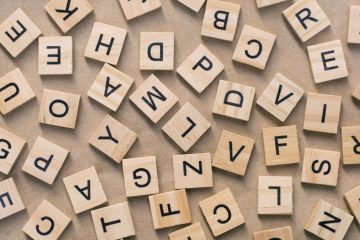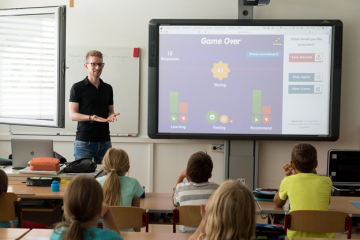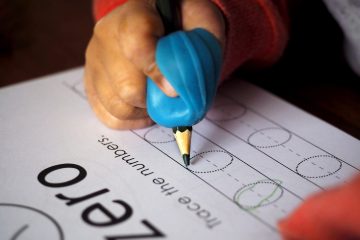85% of parents who took part in a study by Guitar Center last year said they felt that learning a musical instrument increased their child’s ability to finish tasks. Research reveals that the benefits of learning don’t end here, and among the top reasons music lessons are great for children is the fact that it can improve their literacy skills. Keeping children reading and continually sharpening their abilities is a continuous task for parents, but the development of literacy skills can take place beyond the pages of a book. So, what exactly does music do for a child’s language and literacy development?

The effect of music on language acquisition
As soon as they are born, babies respond to language as though it were music. Long before they understand the meaning of words, they respond to the rich melodies and rhythms in language. In evolutionary terms, the human brain used music to create language in the first place: the two are intrinsically linked in the brain. It is through hearing the rhythms and melodies of language that infants begin mimicking language, hence the characteristic sing-song speech of the toddler.
Where does reading come in?
Reading is built on the foundations of speech. Before they can use language, young children must be able to mark speech as a distinct sound from the other sounds that they hear, and studies show that music helps them to do this. Just as understanding speech requires children to make meaning out of sound, reading requires them to make meaning from the written word. Various skills work together to allow this to happen, and one of these skills is fluency: the ability to flow between the patterns of intonation in a phrase and inflect that phrase appropriately (by understanding punctuation). These are auditory processing skills, and this is where music comes in. Indeed, research has shown that three- and four-year-olds who could hold a steady beat were more reading-ready by school age than those who could not.
Harnessing the power of music
Parents naturally sing to their babies, stimulating their auditory processing systems. From there, linguistic abilities can be enhanced when toddlers are taken to groups and classes with music and movement at their center. By preschool age, children are at a crucial stage in their language development, and educators use song, rhythm, and rhyme in their lessons to promote early reading skills. Parents looking to boost this further can search for qualified music teachers to deliver music lessons.
By beginning structured music lessons at an early age, parents can set their children up for a lifelong love of music — and in tandem, promote good literacy skills. In these lessons, children will be taught to read music, reinforcing the connection between sounds and symbols that is so critical to reading. A good music teacher will build a child’s skills slowly, teaching them to sing in tune and begin using musical instruments.
A vast array of instruments are now designed specifically for children. This is vital, because in order for a child to have success with an instrument, they must be in correct proportion to it. For example, a child learning the guitar will need an instrument that allows them to reach and grip the neck. As they get older, the instrument will need to be bigger, allowing them to always be in correct proportion to the guitar. This will enable them to learn the right techniques and focus on the music, giving them a depth of understanding and intuition that will transfer easily to their literacy development.
There are many reasons for a child to learn a musical instrument, but not least is its enormous power to enhance language and literacy. By engaging with and understanding music, children strengthen their auditory processing systems, and this is critical for fluent reading and comprehension.
Contributed by freelance writer and frequent contributor Jocelyn Brown


